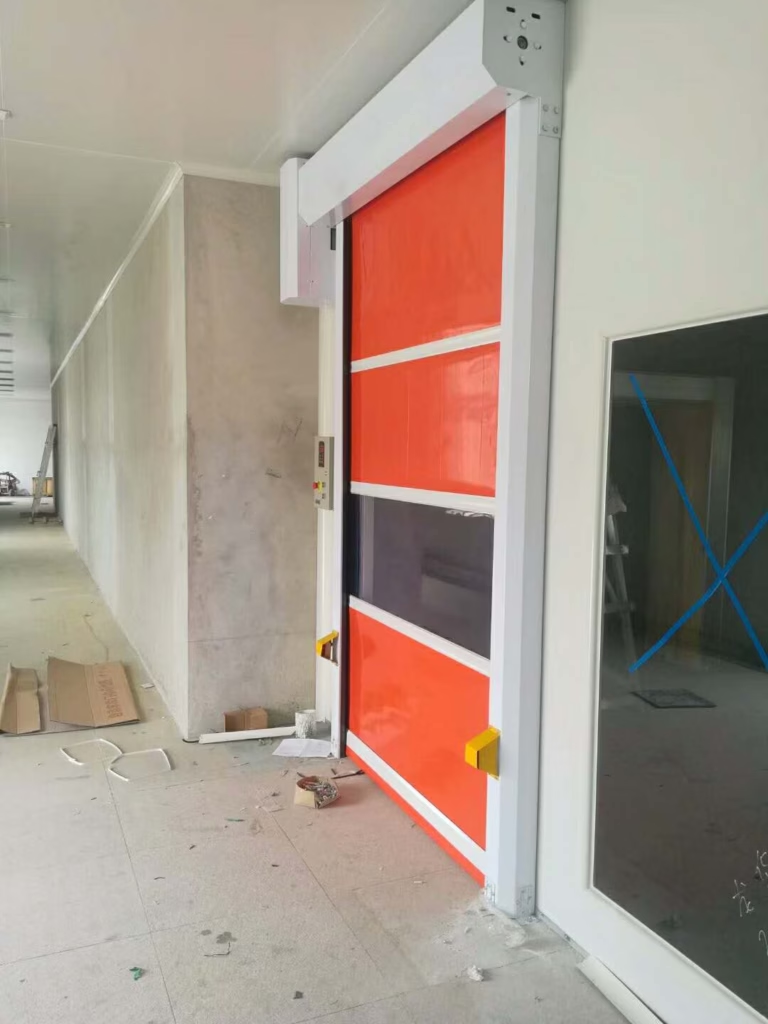commercial roll up doors
Commercial Roll-Up Doors: A Comprehensive Guide
What Are Commercial Roll-Up Doors?
Commercial roll-up doors are overhead doors made from horizontal slats or panels that roll up into a coil above the opening when opened. These doors are commonly used in warehouses, loading docks, garages, retail stores, and industrial facilities due to their space-saving design, durability, and security features.
Unlike traditional swinging or sliding doors, roll-up doors operate vertically, making them ideal for locations with limited space. They are available in various materials, including steel, aluminum, and fiberglass, catering to different security, insulation, and operational needs.
Types of Commercial Roll-Up Doors
1. Steel Roll-Up Doors
Steel roll-up doors are the most popular choice for commercial applications due to their strength, security, and longevity. They are resistant to impact, weather, and forced entry, making them ideal for high-security environments like warehouses and industrial facilities.
- Pros: High durability, excellent security, fire-resistant options available.
- Cons: Heavier than aluminum, may require stronger support structures.
2. Aluminum Roll-Up Doors
Aluminum roll-up doors are lightweight, corrosion-resistant, and ideal for environments where moisture is a concern, such as food processing plants or marine facilities.
- Pros: Lightweight, rust-proof, low maintenance.
- Cons: Less impact-resistant than steel, may dent more easily.
3. Fiberglass Roll-Up Doors
Fiberglass roll-up doors are used in environments requiring visibility and natural light, such as storefronts or greenhouses. They are resistant to corrosion and provide moderate insulation.
- Pros: Allows light transmission, corrosion-resistant, good for moderate climates.
- Cons: Less durable than steel, can become brittle in extreme cold.
4. Fire-Rated Roll-Up Doors
Fire-rated roll-up doors are designed to prevent the spread of fire and smoke in commercial buildings. These doors are often required in warehouses, parking garages, and industrial facilities to meet fire safety codes.
- Pros: Meets fire safety regulations, enhances building safety.
- Cons: Higher cost, heavier than standard doors.
5. Insulated Roll-Up Doors
Insulated roll-up doors are designed for temperature-controlled environments, such as cold storage facilities or climate-sensitive warehouses. They feature foam or thermal barriers to reduce heat transfer.
- Pros: Energy-efficient, reduces noise, maintains internal temperatures.
- Cons: More expensive than non-insulated options.
Key Features of Commercial Roll-Up Doors
1. Space-Saving Design
Roll-up doors coil vertically, eliminating the need for swing clearance, making them perfect for tight spaces.
2. Durability & Security
Constructed from robust materials like steel or aluminum, these doors resist forced entry and harsh weather conditions.
3. Smooth Operation
Modern roll-up doors feature counterbalance springs and smooth-tracking systems for effortless manual or automatic operation.
4. Customization Options
Available in various sizes, colors, and finishes to match commercial aesthetics and branding.
5. Low Maintenance
Unlike traditional doors, roll-up doors have fewer moving parts, reducing wear and maintenance costs.
Benefits of Commercial Roll-Up Doors
1. Enhanced Security
With reinforced slats and locking mechanisms, roll-up doors deter break-ins and unauthorized access.
2. Improved Efficiency
Automated roll-up doors with sensors or remote controls streamline operations in high-traffic areas.
3. Weather Resistance
Sealed designs prevent wind, rain, and debris from entering, making them ideal for outdoor applications.
4. Cost-Effective
Long lifespan and minimal maintenance reduce long-term costs compared to other door types.
5. Compliance with Safety Standards
Fire-rated and insulated options ensure compliance with building codes and industry regulations.
Applications of Commercial Roll-Up Doors
1. Warehouses & Distribution Centers
Used for loading docks, storage areas, and shipping bays to facilitate quick access and secure storage.
2. Retail & Storefronts
Provide security while allowing visibility in shopping centers and store entrances.
3. Industrial Facilities
Protect machinery, storage, and sensitive areas from unauthorized access.
4. Parking Garages
Fire-rated roll-up doors enhance safety in multi-level parking structures.
5. Food & Beverage Industry
Stainless steel or aluminum roll-up doors meet hygiene standards in processing plants.
Installation & Maintenance Tips
Installation Considerations
- Ensure proper measurements for a seamless fit.
- Verify structural support for heavy-duty doors.
- Choose between manual or motorized operation based on usage frequency.
Maintenance Best Practices
- Regularly lubricate tracks and rollers.
- Inspect for dents, rust, or misalignment.
- Test automatic sensors and safety features periodically.
Choosing the Right Commercial Roll-Up Door
Factors to Consider
- Material: Steel for security, aluminum for corrosion resistance, fiberglass for visibility.
- Insulation Needs: Required for temperature-sensitive environments.
- Security Level: High-security doors for valuable inventory.
- Operational Frequency: Automated doors for high-traffic areas.
- Budget: Balance cost with durability and features.
Conclusion
Commercial roll-up doors offer a versatile, secure, and efficient solution for various industries. By selecting the right material, insulation, and automation features, businesses can enhance security, efficiency, and operational workflow. Proper installation and maintenance ensure long-term performance, making roll-up doors a smart investment for commercial properties.

